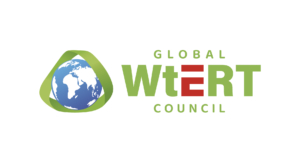Recent catastrophic events have made climate change a major environmental issue. The Intergovernmental Panel for Climate Change (IPCC) has estimated that methane (CH4) is 25 times stronger than carbon dioxide (CO2) over a 100-year horizon; and 80 times stronger over a 20-year horizon, a timeframe which is increasingly seen as essential in combating climate change.
Energy and metals recovery from urban wastes (waste-to-energy or WtE) is one of the key areas that can help address this issue.
Over the past 15 years, China has made tremendous progress in building WtE plants that replace landfills, which are considered to be the third-largest anthropogenic source of methane (CH4) globally, accounting for approximately 11% of estimated global methane emissions. China has also invested an estimated US$25 billion in building WtE facilities through national policy and economic incentives. Today, China’s WtE capacity is equal to that of the European Union, the United States, and Japan combined.
In addition, the “mass production” of Chinese WtE plants has significantly reduced the cost per ton investment (CAPEX) of these facilities, providing a model of waste disposal that can be afforded and adopted by developing countries, especially in Asia and Africa.
The 2022 Waste-To-Energy Research And Technology (WtERT) Asia Meeting, co-organized by Columbia Global Centers | Beijing and the Global Waste-to-Energy Research and Technology Council (Global WtERT Council), comprised four sessions focusing on waste-to-energy technologies and their applicability, as well as the best practices in different countries and regions.
Webinar I (May 18, 2022): Benefits of Waste-to-Energy and Its Promotion
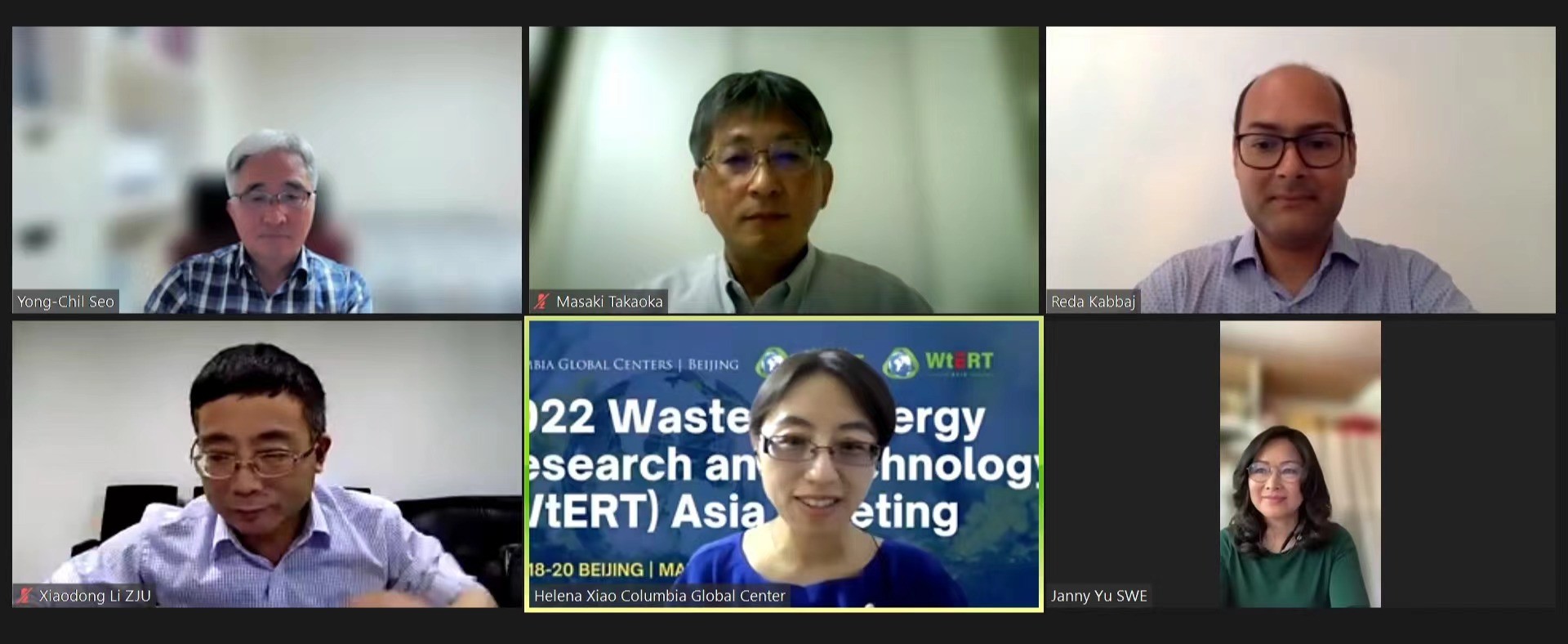
Panelists:
- Janny Jiangrong Yu, Managing Director, SwissEngineers AG
- Masaki Takaoka, Professor in Department of Environmental Engineering, Graduate School of Engineering, Kyoto University
- Xiaodong Li, Professor of the College of Energy Engineering, Zhejiang University
- Yong-Chil Seo, Former President of Korea Society of Waste Management; Professor Emeritus, Yonsei University
Moderator:
- Reda Kabbaj, International Senior Business Consultant and Entrepreneur, Vice President of International Relations, Global WtERT Council
In the first session, the panelist introduced the economic and environmental advantages of WtE over landfilling and its role in circular economy and emission reduction. Through best practices in Switzerland, Korea, Japan, and China, they demonstrated ways to leverage public-private partnerships to channel financial resources and the application of WtE technologies in energy and waste management. They also discussed the role of platforms that facilitates the promotion of technologies and raise public awareness. Several speakers stressed that the research and development (R&D) of WtE technologies is the key to lowering the cost of WtE and should be supported by diversified funding channels.
Webinar II (May 19, 2022): WtE Practice in China and Its Applicability in Other Regions
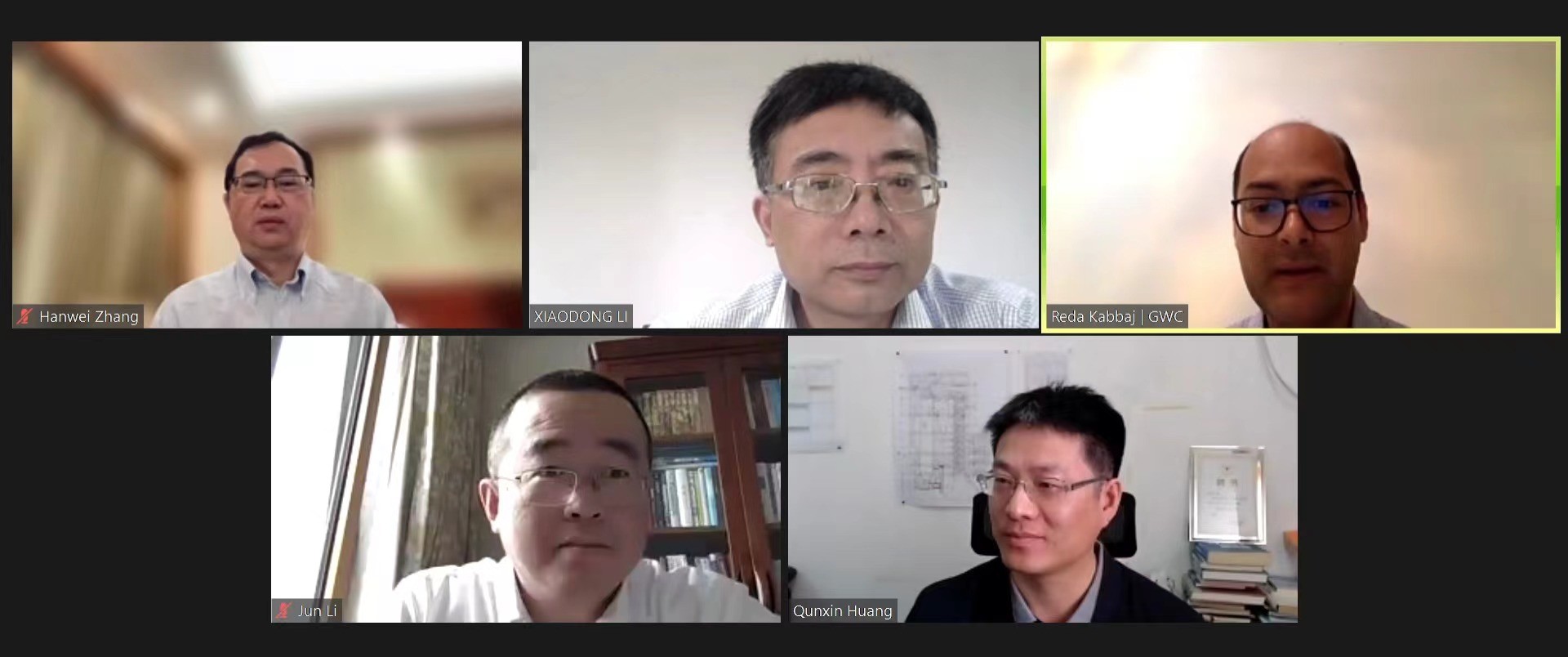
Panelists:
- Qunxing Huang, Vice Dean of College of Energy Engineering, Zhejiang University
- Hanwei Zhang, Vice President of Engineering, Global WtERT Council; General Secretory of WtERT Asia
- Eric Liang Zhan, General Manager, International Business Development, Shanghai SUS Environment
- Jun Li, Chief Engineer and Vice President of China Tianying Co., Ltd
Moderator:
- Xiaodong Li, Professor of the College of Energy Engineering, Zhejiang University
The second session focused on China’s best WtE practices and technologies and whether these experiences could be replicated in other countries. Professor Xiaodong Li presented a detailed overview of China’s WtE development, including its contributions to economic growth, replicable technologies, policy and legal incentives, and improvements in supervision to gain public trust. More replicable technologies were discussed, including mixed municipal solid waste (MSW) combustion, new pollutant control technologies, AI combustion diagnostic and intelligent plan, etc. Panelists also shared first-hand industrial insights on how to design cost-effective WtE plants and how to implement relative technologies in the global marketplace. The cases of WtE implementation in China also highlighted the lessons learned in bridging technologies with the public, industry, and governments.
Webinar III (May 19, 2022): Possible Ways to Build Collaborations
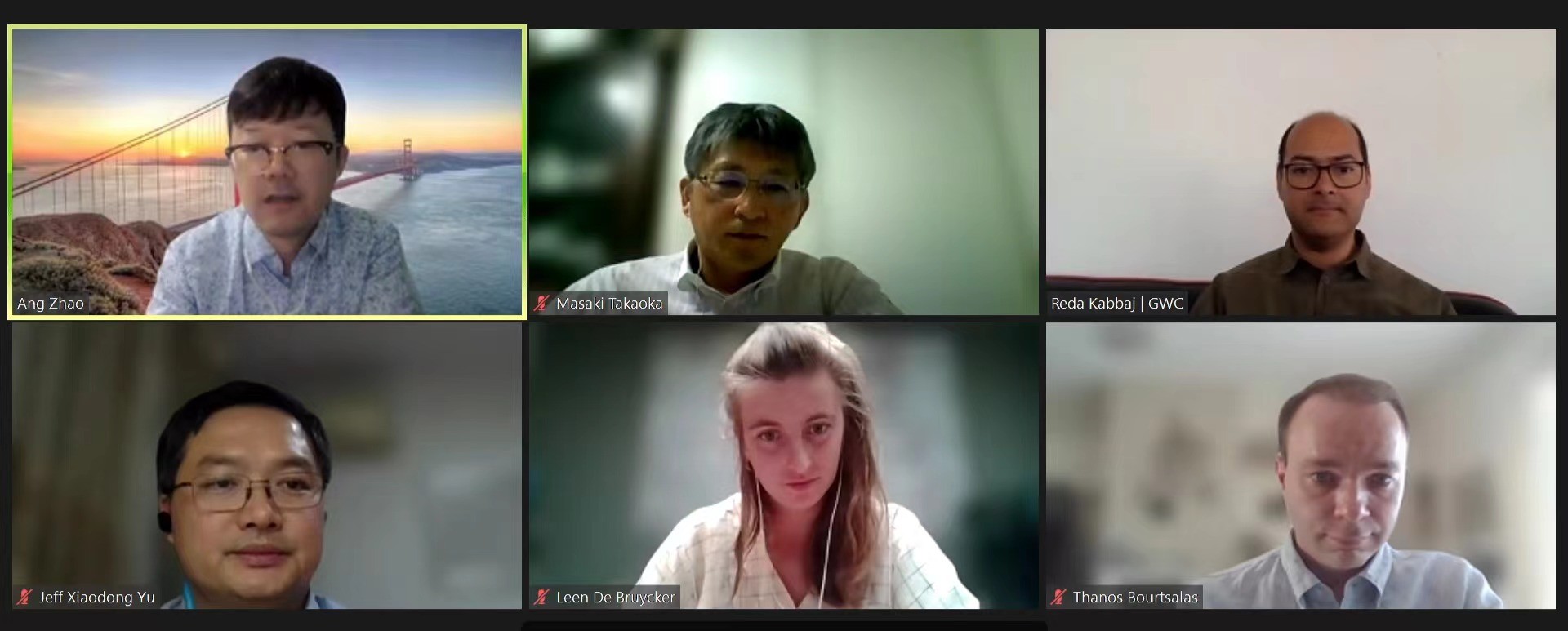
Panelists:
- Masaki Takaoka, Professor in Department of Environmental Engineering, Graduate School of Engineering, Kyoto University
- A.C. Bourtsalas, Adjunct Assistant Professor at the Earth and Environmental Engineering Department, Columbia University
- Reda Kabbaj, International Senior Business Consultant and Entrepreneur, Vice President of International Relations, Global WtERT Council
- Xiaodong Yu, Vice President, International Division, GCL Energy Technology Co., Ltd.
- Leen De Bruycker, Technical and Scientific Officer, Confederation of European Waste-to-Energy Plant (CEWEP)
Moderator:
- Ang Zhao, Co-director & Co-founder of Rock Environment and Energy Institute
The panelists in this session discussed ways to facilitate international collaboration to promote WtE technologies. Professor Masaki Takaoka began by highlighting the increasing importance of WtE in the treatment of urban wastes, suggesting that the reduction of WtE emissions should be considered as part of international climate action. Professor A.C. Bourtsalas proposed a roadmap for international cooperation on WtE and circular economy, especially in the Global South. He stressed the importance of increased transparency in the procurement processes and of providing jobs to women and low-income individuals in the WtE sector. The approaches to improving public consultation and better implementing international WtE projects were discussed through the success stories of GCL Energy Technology’s international WtE projects in Indonesia and those in Europe under stringent dioxins legislation.
Webinar IV (May 20, 2022): The Routes to Influence Policy: How to Advocate for WtE in the Global Public Agenda
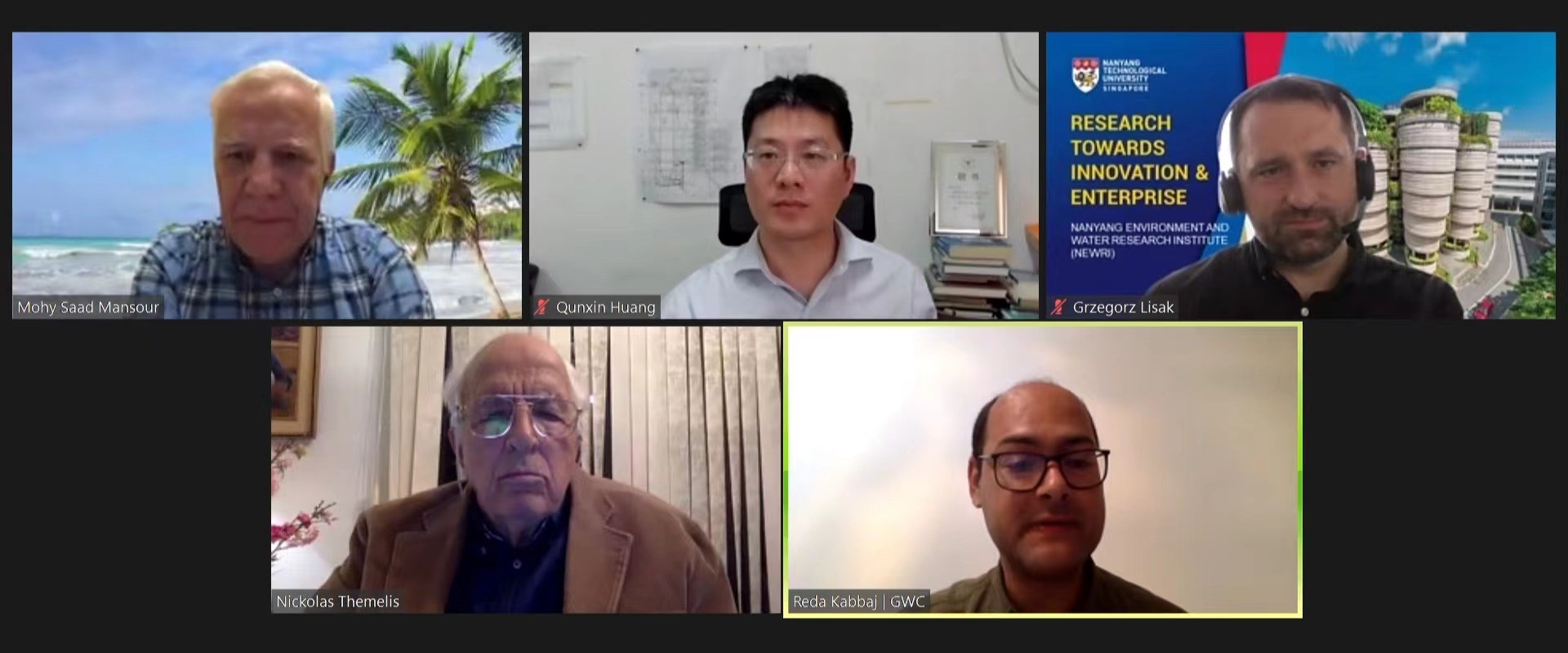
Panelists:
- Grzegorz Lisak, Associate Professor with Tenure, Nanyang Technological University Singapore
- Mohy Saad Mansour, Professor of Mechanical Power Engineering Department, Cairo University
- Nickolas Themelis, Founder of Columbia’s Earth Engineering Center; President of Global WtERT Council
Moderator:
- Qunxing Huang, Vice Dean of College of Energy Engineering, Zhejiang University
The last session focused on ideas influencing national policy and public acceptance of technological alternatives to landfilling. Professor Nickolas Themelis began the session with an outline of the WtE industry, including public health concerns, major greenhouse gas emissions (GHG) benefits, and significant obstacles. The panel reviewed the latest technologies for efficient waste management and the reduction of emission levels in the WtE industry. Examples from Singapore illustrated ways to engage governments and influence policy by building close relationships between academia and government and minimizing misperceptions about WtE technologies. Professor Mohy Saad Mansour stressed the importance of WtE technologies to developing countries, especially populous countries like Egypt. The discussion concluded with suggestions for activities before and during COP 27 that will take place from November 7-18, 2022, in Egypt.
